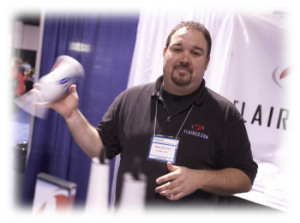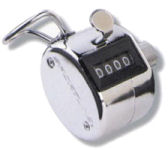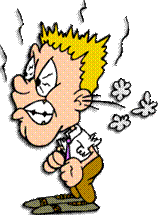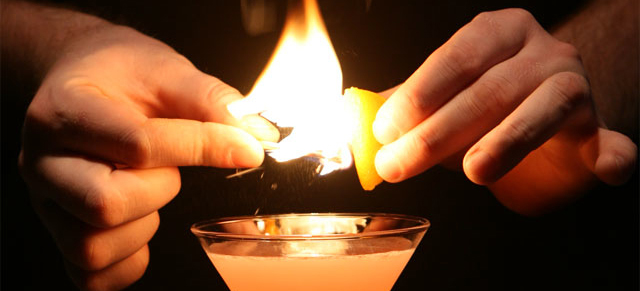Utlizing ‘AI’ Artificial Intelligence Software in the Hospitality Industry
Have you ever wanted more time and more help in your...

How many times do you think I’ve heard that line? Thankfully, I don’t hear it very often these days. But in the earlier years of judging flair bartending competitions, it happened more often than I care to admit. The majority of flair competitions today feature an experienced judging panel that reflects the talent being showcased. The better the bartenders, the more experienced the judges. Most international level competitions bring in judges from around the world, and I am often fortunate to be one of them. This article is a meant to be a quick look into the world of judging flair competitions and why we do what we do.
The first competition I ever judged was the start of the original Flairco Summer Tour. That was way back in 1999. Dean Serneels asked me if I wanted to compete (believe it or not I did actually compete back then), but I was too busy to practice while working four different jobs. I showed up on the night of the competition anyway and volunteered to help out however I could. As it turned out, Dean needed another judge and I got thrown in without any preparation, rules or anything more than a basic score sheet and a pen.
| I remember the comp well. It was behind the service bar of a Red Lobster on the edge of Toronto. The wooden bar top wasn’t quite level and there was a glassware rack right above it. One of the competitors almost knocked himself out cold after taking a Flairco bottle to the head part way through his routine. Shawn Greco came out of nowhere to win the competition and the free trip to Quest. Martin Zikmund worked at this location and it was his first ever competition, having just finished his flair training with Dean. Chris Cooper was the last competitor to go and his stack of martini glasses ended up shattered all over the bar and in my lap. |
| I can also remember wondering what the hell I had gotten myself into. The other judges were either bartenders or liquor reps, but they really didn’t have any answers for me on what we were supposed to judge. When Dean asked me if I wanted to judge the next competition, I was really interested, but wanted to make sure that the judging criteria was explained to me in a bit more detail. |
| You can take this scenario and apply it to almost every flair competition at the time. There were a lot of great new bartenders competing, but the competition structure was just not there. Since then, everything has grown exponentially. It is a continuing cycle of more events, more competitors, increased skills, bigger sponsors and more exposure to the mainstream public. With this growth has come the evolution of the flair bartending competition rules. Event organizers have fine tuned their rules to better reflect what they are looking for from the competitors. With these changes came the need for more experienced and qualified judges, people who actually knew what they were looking at and could break down routines subjectively for a specific set of scoring categories. Gone were the token industry judges, such as the drunken mixer rep dancing in front of the bar between competitors instead of judging the specialty round. |
I think that it was during the first part of this change that the infamous line above was used the most. There was a lot of amazing bottle flippers in each competition, but they really hadn’t gone far enough to breakdown and understand how they were being scored. Sure their moves might have been the toughest, but if difficulty was only one of ten equally weighted categories, how many more points were the other competitors beating them by in the other categories? The first few competitors who figured out how to make the most of their skills in every category rose to the top quickly.
 Then there is the whole issue of deductions. To this day, deductions can make or break a competitor’s routine. As a competitor, you need to earn points and keep them, not lose them through mistakes. There is no point in noting specific examples (there are a few high profile ones that I was involved with that come to mind), let’s just say that they are in the past and there is a good reason I don’t have a burning desire to watch for deductions while judging now.
Then there is the whole issue of deductions. To this day, deductions can make or break a competitor’s routine. As a competitor, you need to earn points and keep them, not lose them through mistakes. There is no point in noting specific examples (there are a few high profile ones that I was involved with that come to mind), let’s just say that they are in the past and there is a good reason I don’t have a burning desire to watch for deductions while judging now.
Enough of the history lesson. With the current large scale competitions, event organizers are very careful to plan out their rules structure and scoring system, and then carefully explain what they are looking for from their competitors to each qualified judge. For Legends and Quest (and likely the rest of the FBA Pro Tour for 2005), there is a breakdown provided to the judges that showed what the competitors needed to do for each level of scoring. Trust me when I say this breakdown is a lifesaver for judges at these big events. Just try to be subjective at a world class level after twelve hours and 70 bartenders with five different scoring categories to see what I mean. Huge kudos to Ken Hall for coming up with and adapting that breakdown for these events. Ultimately, this means that if the bartender puts together a routine that maximizes their potential points for each category based on their skills, and they keep drops, spills, wrong drinks and breaks to a minimum, they should do okay. Right?
| I regularly get bartenders who ask me what I think they can do to get better results at competitions. Unfortunately, I can’t remember every detail of every bartender’s routine, but that is where the scoring system can help out. If the points are broken down by category, it is very easy to review what areas were strong or needed work in a bartender’s routine. However, at the large scale events, this type of breakdown is just not practical and the actual score sheets are needed. |
When judging a bartender, I breakdown their routine into sequences, with a rating on what the sequences were like (excellent, good, indifferent, bad and nasty). This way, once the routine is over and I need to determine their scores, I have the essence of what they’ve done written down and can review it as needed. Many other judges have similar systems to be able to compare and score bartenders in an organized pattern. This also helps judges compare amongst themselves when trying to make a tough scoring decision.
 So on the off chance that someone comes up to me now and uses the line at the top, I don’t take it personally. Instead, I try to explain to them how they ended up with the score that they did. I know and understand why competitors can be upset or emotional in the heat of the moment. Typically once we’ve sat down and gone through to review their final score judge by judge, category by category, deduction by deduction, they get a better idea of what happened. If they’re still upset, I give them a chance to cool down, think all of the numbers over, then talk about it (usually over a cold beer, judges don’t drink while we’re working). Worse case scenario, we agree to disagree on the results and move on to the next competition.
So on the off chance that someone comes up to me now and uses the line at the top, I don’t take it personally. Instead, I try to explain to them how they ended up with the score that they did. I know and understand why competitors can be upset or emotional in the heat of the moment. Typically once we’ve sat down and gone through to review their final score judge by judge, category by category, deduction by deduction, they get a better idea of what happened. If they’re still upset, I give them a chance to cool down, think all of the numbers over, then talk about it (usually over a cold beer, judges don’t drink while we’re working). Worse case scenario, we agree to disagree on the results and move on to the next competition.
After judging over fifty competitions including Legends, Quest, Roadhouse, Pinnacle, Big Apple Showdown, Cayman Masters, Best in the West, Nations, Barwars, Tampa Showcase, Bartrix Baseball Bash and Winter Games, Battle of the Flair Gods, Flair Bowl, Bar & Beverage and too many other local comps to remember, I’ve learned that you won’t please all of the bartenders all of the time, but you need to stick to your guns if you are confident in what you are doing.
| So much for the explanation, how about some tips? This is not rocket science by any means, but if you are new to competing or have never take the time to understand your final score, it might help you improve (along with lots of practice, but that pretty much goes without saying right?). |
Helpful Hints (from a judge’s point of view).
)
That’s all I’ve got for now, unless you want to get into crazy, drunken competition stories from around the world. Since judges tend to start drinking later than competitors, we are the best ones to ask just what the hell happened the night before. Maybe I’ll save those for later. Otherwise, if you’re at an event and feel that you need to use that line, save it. You already know how I’m likely to respond. Cheers!
Have you ever wanted more time and more help in your...
MANGO MAGIC: Marco Estrada, Brownsville, TX 1 ½ oz Aviation Gin ¾...
ALOE WOK: Olya Sabanina, Saint Petersburg, Russia 1 1/3 oz Aviation Gin...
We have all strived to become better at our craft, or else,...
About the author, Elton Marvin Jr. has worked in the food and...
From starting out picking up a Flairco bottle after watching the movie...

Your cart is empty.
Click “Play” on the video above.
Click “Play” on the video above.
Click “Play” on the video above.

